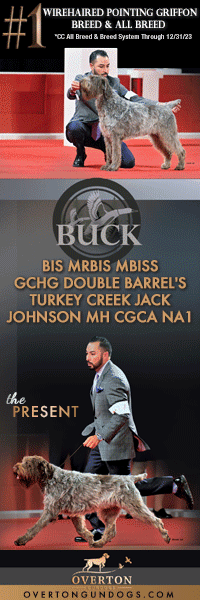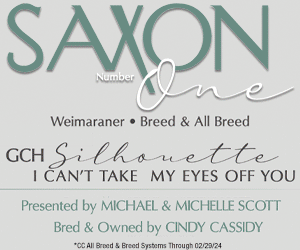Proposed 2014 Judging Approval Process Frequently Asked Questions
The American Kennel Club is seeking feedback on the 2014 Proposed Judges Approval Process. Please review the proposal and send in your comments to judgingapproval@akc.org no later than Tuesday, November 18, 2014. To follow is a list of Frequently Asked Questions regarding the newly Proposed Judges Approval Process.
Q: Why is the Board considering changing the judging Approval Policy yet again?
A: The Board is concerned with a number of factors arising from the Judging Approval Policy now in use.
- Clubs are finding it harder and harder to staff All-Breed shows with the requisite Group judges due to limited numbers of Group approved, and especially multi-group approved judges.
- Exhibitors are complaining of having few choices over time of the judges that are offered on show panels. They say they are tired of seeing the same faces judging month after month at their local shows. A small percentage of judges judge a huge percentage of the All-Breed entries.
- Judges are discouraged by the Executive Field Representative observations of their placements. Many highly qualified individuals are choosing not to judge or are choosing not to seek to judge additional breeds due to the uncertainty and subjective nature of the current policy.
Q: How will the new system differ from the current system concerning preparation to apply to judge new breeds?
A: Many judges found the prior system of completion of recognized acceptable educational components (check-the-boxes) to be much clearer and more certain than the current system of simply describing the preparatory work accomplished. The new system will return to the component completion system. The intent is to provide more definite prerequisites necessary to the approval to judge a breed. Thus, specific Qualifying Educational Components are presented, along with the number of points (CEU) to be earned for each component. (The Parent Clubs were surveyed to determine what THEY felt were the best ways for a prospective judge of their breed to become educated in the breed. The Components and the weight to be given each arise from that survey.) When a prospective judge has earned enough CEU points per breed (by completing Qualifying Components) he or she may apply for that breed, and save for exceptional circumstances, can expect approval for that breed.
Q: How many CEU’s are required for each new breed application.
A: It depends upon how experienced the aspiring judge is, based upon his or her group approvals. The Component Matrix presents the number of CEU’s necessary for a prospective judge to complete for each new breed approval. A judge with six or seven groups needs fewer CEU’s per breed than a judge still in his or her first or second group.
Q: How will each additional breed application be reviewed and approved? Will a Committee decide which breeds to approve?
A: The only Committee involved in the proposed process will be the Board of Directors Appeals Committee, and then only if the Judging Operations Staff and the Applicant cannot agree on a particular portion of an application. Additional breed applications will be processed by the Department to determine compliance with the mandatory and optional Component requirements. Once determined to be complete, the application will be published in the Gazette and thereafter approved unless the Department files an objection with the Board Appeals Committee (after full notice to and an opportunity to respond by, the applicant). There is no Judges Review Committee.
Q: What is the role of the Executive Field Representative? Will they observe judging procedure of newer judges?
A: The Executive Field Representative is a valuable resource for the beginning and continuing judge. The Executive Field Representative will participate in the training and evaluation of judges at the beginning of their careers, to assure that the judge is fully conversant with the Rules, Guidelines and Policies governing judging. Executive Field Representatives will observe the newer judge to assure that he or she can properly handle the ring, and all who enter it. Proper procedure, compliance with the rules and courtesy to all are necessities when judging, and the Executive Field Representative will help train and assure that judges are proficient.
In recognition of the experience and expertise of the Executive Field Representative, in addition to their ongoing responsibilities under the policy with the judging community, they will work with parent clubs in their efforts to develop and provide educational training about their breed as well as provide training in the use of scales, wicket, ramp, table and other breed judging related matters. They will serve as a valuable resource to Clubs and assist, as requested, in the management of their shows and special programs. They will serve as the “face” of the American Kennel Club with the public and the fancy.
Q: What about Placement Evaluations by Executive Field Representatives?
A: The Executive Field Representative will NOT observe judging for the purpose of commenting upon, evaluating or critiquing a judge’s selection of awards or placements. There will be no observation reports grading a judge’s performance on the merits of awards.
Q: Will interviews with Executive Field Representatives still be required?
A: An Executive Field Representative will interview each judge seeking approval to judge for the first time. The purpose of the interview is to train and assure the judge is comfortable in the proper procedures of judging and in the implementation of the appropriate Rules, Guidelines and Policies governing judging. Interviews for additional breed applicants will not be required.
Q: Is the process under this newly proposed Policy “easier” than in the past for a judge to obtain additional breed approvals?
A: The Board does not consider the process easier. Rather, relevant educational experiences continue to be the foundation of approval to judge. The Board believes that a well-educated judge who has taken advantage of various learning experiences and tools to become conversant with the intricacies of each breed is prepared to judge that breed. Permit status will continue for the first six assignments, so that Exhibitors will be aware that the judge is just beginning to judge that breed.
The process, while not “easier” is different. Fulfillment of objective standards of preparation is the key to this new system. The uncertainty of subjective decisions of third parties – Judges Review Committees or Executive Field Representatives – is removed. Rather, educational preparation completed is the road to breed approvals.
Q: Will the Clubs and Exhibitors know what I have done to prepare myself to judge a new breed?
A: The Board anticipates publishing for each applicant a list of the educational components, which form the basis of the application for each additional breed. Should a judge, after approval for a breed, participate in additional educational components for that breed, the newly obtained educational component will be added to the judge’s published resume.
Q: What about Low Entry Breeds?
A: Low Entry Breeds continue to be defined as a breed with less than 3500 entries in AKC shows in the previous year. Exhibitors of Low Entry Breeds do not want to be treated as second-class citizens. They want their judges educated and qualified along with all other breed judges. There are, however, realistically, simply because of the relative scarcity of such breeds, fewer educational experiences offered and available for the judging community to attend. Thus, all judges seeking approval for a low entry breed must complete CEU’s in that breed, just as in all other breeds. Due to the availability of fewer Qualifying Components, the number of CEU’s for low entry breeds is reduced.
Q: Are Breed Standard Tests required?
A: Yes. A Breed Standard test answer sheet must accompany each application for a breed. The criteria for passing the test remain the same as in the past.
Q: Are there any fee increases?
A: No. The fee structure of $25 per breed remains the same. If, however, a breed application is not granted, the fee paid will be a credit for the next application, if any.
Q: Is there any appeal process for an applicant?
A: Yes. If the Department and Applicant cannot agree on any portion of the application, the applicant can immediately appeal to the Appeals Committee of the Board. There is a $50 fee for such an appeal. An appeal of any one breed application will not affect or suspend an application for any other breed. No breed granted shall be removed because of an appeal of another breed application. It is anticipated that the appeal process, while quick, will not be often used since the criteria for Qualifying Components are objective and clear.
Short URL: http://caninechronicle.com/?p=63533
Comments are closed












